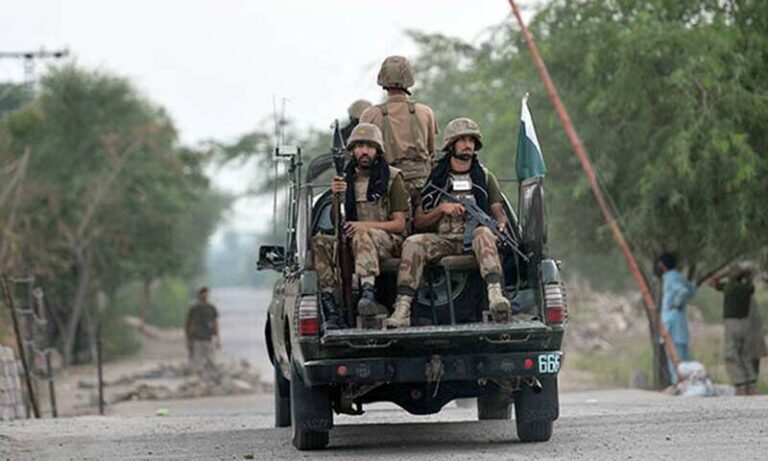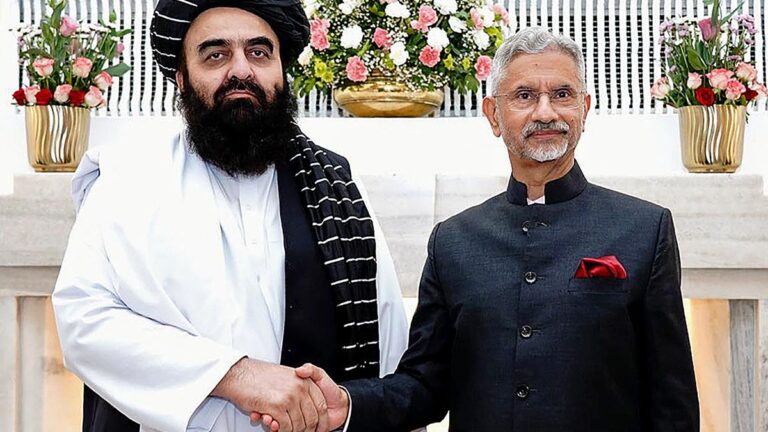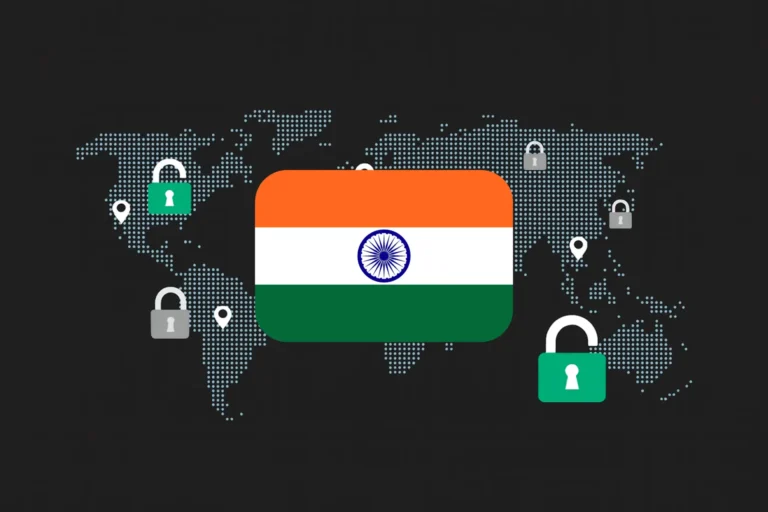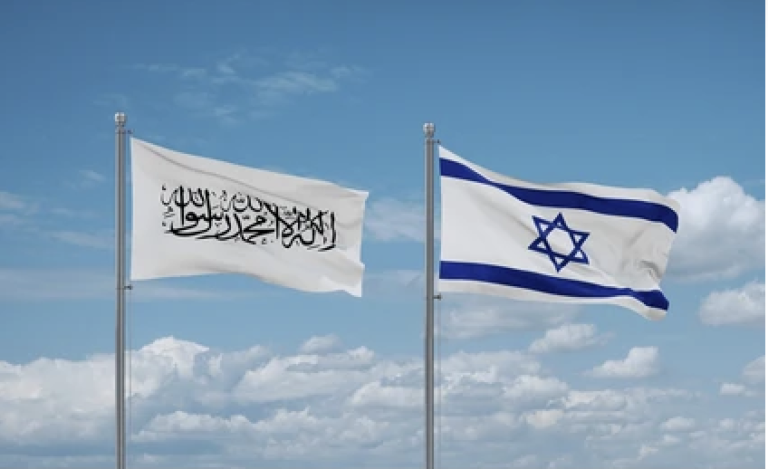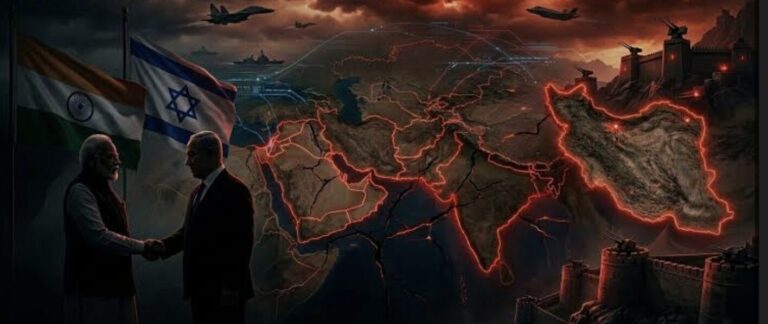August 5: Remembering Kashmir’s Day of Exploitation and Resilience
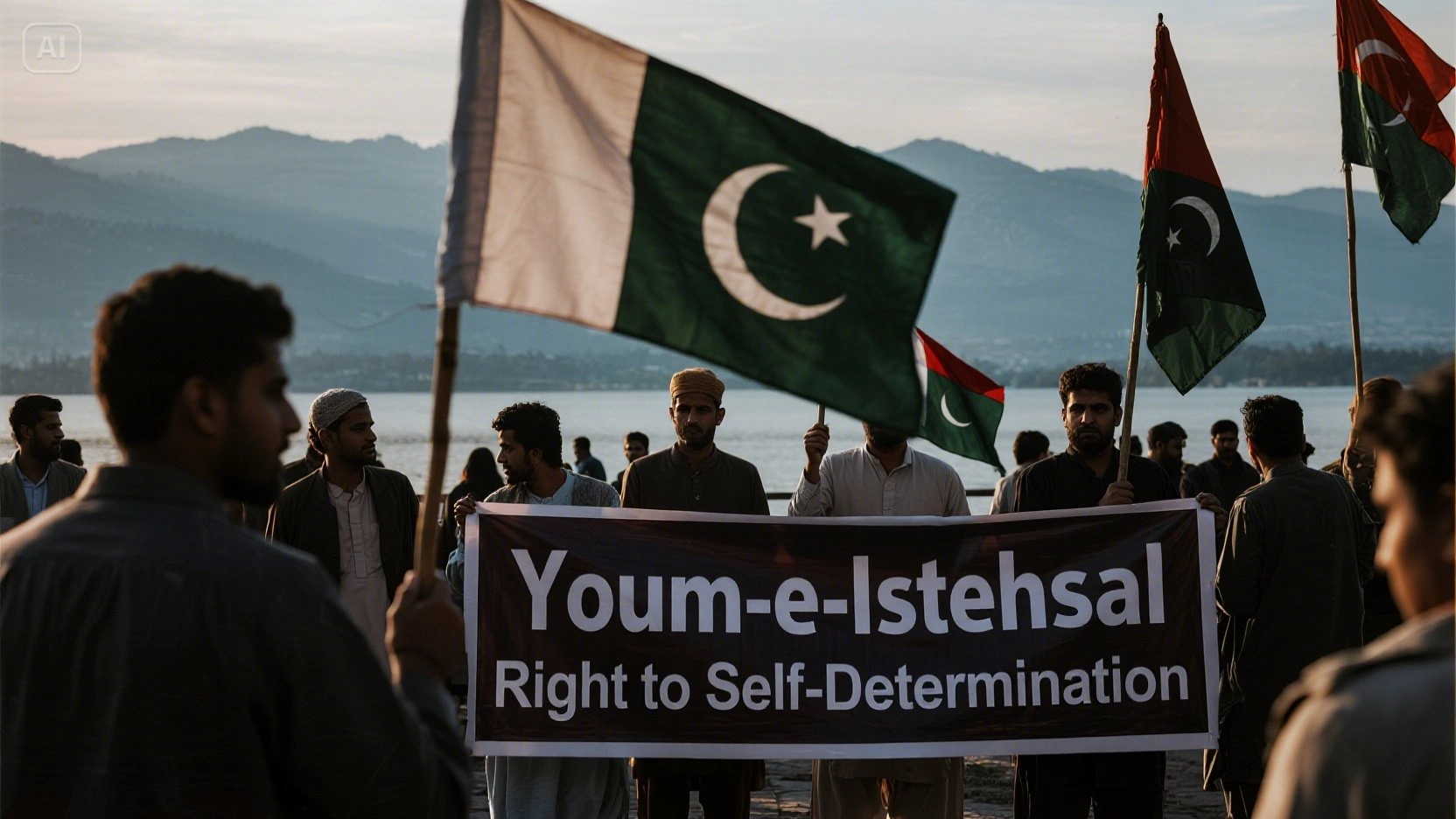
August 5: Remembering Kashmir’s Day of Exploitation and Resilience
August 5 is an important, yet a partially tragic, landmark in the annals of the Indian administered Jammu & Kashmir. The same day in 2019 the Government of India unilaterally revoked Articles 370 and 35A of its constitution stripping Kashmir of its special status and carving the region into two union territories: Jammu & Kashmir and Ladakh. Pakistanis and Kashmiris in general celebrate August 5, also known as Youm-e-Istehsal (“Day of Exploitation”), as a black day that marks continuing oppression and resistance.
Exploitation The historical roots of exploitation can trace back to 1981 when the British Government took control of the industry.
Article 370 to Occupation
Jammu & Kashmir prior to August 5, 2019, had a special constitutional status in India, both of which granted little autonomy through Article 370 and Article 35A. These articles secured the identity and rights to land and special status of legislation of the region. Their sudden cancelation took away this protection and this attracted a lot of criticism including by China and Pakistan which said it to be a violation of international law and the resolutions of the United Nations Security Council.
Demographic police and militarized lockdown: The Aftermath
In its turn, India enforced an intense military lockdown in the Kashmir state. Communication blockage, mass arrests, detection and restrictions of mobility became common. Indians have been complaining that India has been trying to engineer demographics with domicile and settlement laws that are purported to enhance the transformation of Kashmir to be a non-Muslim-dominated population.
What Youm-e-Istehsal is to Kashmiri People?
This day of observation presents a dual theme, which is exploitation, the systematic persecution of Kashmiris since 2019, and the second aspect is resilience; the spirit of resistance that lingers on among the Kashmir people and diaspora.
Celebrating the Day: Boycott and protest
The Official and Civilian Remembrance in Pakistan
Pakistan commemorates August 5 as Youm-e-Istehsal since 2020. Solidarity marches, seminars and official releases through press are organized in the major cities including Islamabad, Azad Jammu & Kashmir, Gilgit-Baltistan and provincial capitals etc.
Messages of solidarity are constantly given by the top political leaders. The right to self‑determination of Kashmiris is underscored by ex-security ministers, officials, former diplomats, and representatives of the Hurriyat group who have appealed to the international community to take notice of events in Kashmir.
Global and diaspora engagement
Kashmiri diaspora communities and their adherents all around the world also mark Youm-e-Istehsal. Protests, rallies, and press conferences are to inform people about what can be named as the human rights violations and oppression of Kashmiris. All Parties Hurriyat Conference (APHC) has an established role in facilitating such international endeavors.
Rather than give up, they resorted to resilience in response to exploitation.
The struggle of Kashmir is decades old. Since the invasion of the Indian forces in 1947, mass protest, and recently the crackdown unfolded, Kashmiris had time and again demonstrated resilience. August 5, 2019, ruling is just another instalment in a long story of oppression‑admittedly countered.
The commemoration on this day confirms again that the identity, culture, but also aspirations of self-determination still exist in Kashmir despite the erasure efforts. Whether in all the rallies, or any song or even any speech on Youm-e-Istehsal, the Kashmiri voice is audible, which hark to centuries of heritage preservation and being unmuted.
To the Local and International Reaction
August 5 has been described by Pakistan government as a Black Day in the history of Kashmir. Federal ministers like Abdul Aleem Khan criticized Indian activities terming them to be a crime against humanity and the international law — a promise was made to keep giving moral and diplomatic assistance to Kashmiri cause.
Reactions have been mixed on the global front. China formally denounced activities of India as illegal based on the sovereignty issues concerning the disputed territories. These criticisms have been echoed by human rights organizations and other world leaders who have pleaded that the problem should be solved through dialogue and observing UN resolutions.
A Day of Sorrow, Demonstration and Hope
August 5 – Youm-e-Istehsal – is mourned by the Kashmiris as the sign of exploitation but has not been celebrated without broken defiance. An action as simple as the removal of constitutional rights in 2019 has culminated in a movement of unity, strength, and the predisposition toward defying silence.
Kashmiris still maintain their demand of justice, identity and most importantly self‑determination by means of power through rallies, speeches, media campaigns and international advocacy. With each succeeding anniversary the day testifies to their continued fight and their tenaciousness in the face of it and the sixth anniversary as we get into 2025 will celebrate this commitment.
Disclaimer:
The views and opinions expressed in this article are exclusively those of the author and do not reflect the official stance, policies, or perspectives of the Platform.

